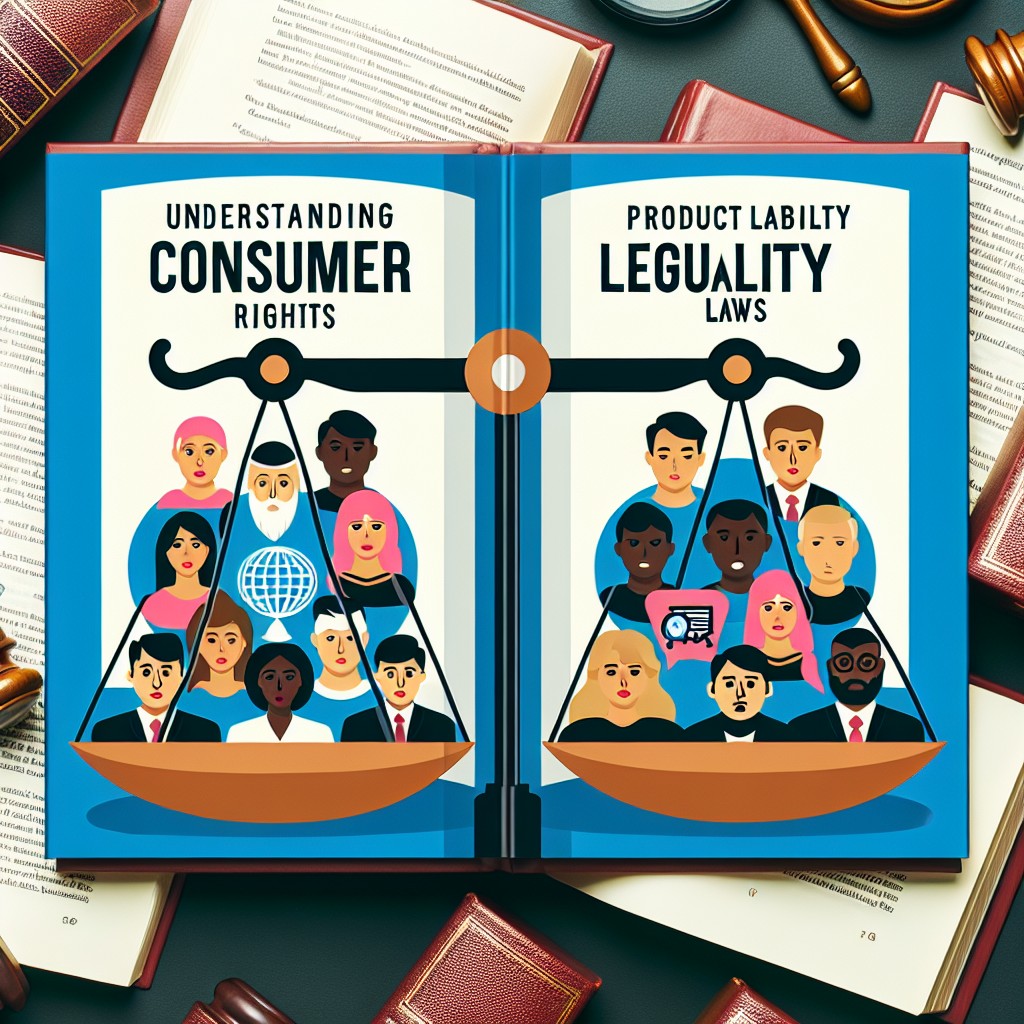Product liability laws are designed to protect consumers from harm caused by defective or dangerous products. These laws establish the legal framework for holding manufacturers, distributors, and sellers accountable for any injuries or damages caused by their products. Understanding product liability laws is essential for consumers to assert their rights and seek compensation for any harm suffered.
Product liability laws vary from country to country, but they generally encompass three main types of defects: design defects, manufacturing defects, and marketing defects. Design defects occur when a product's design is inherently dangerous or fails to include necessary safety features. Manufacturing defects are flaws that occur during the production process, making the product different from its intended design. Marketing defects involve inadequate warnings or instructions, which can lead to improper use or unexpected dangers.
To establish a product liability claim, consumers generally need to prove three elements: that the product was defective, that the defect caused their injury or damages, and that they were using the product as intended or reasonably foreseeable. This means that if a consumer misuses a product in a way that could not have been anticipated by the manufacturer, they may not have a valid claim.
The legal theories underpinning product liability claims include negligence, strict liability, and breach of warranty. Negligence claims require proving that the manufacturer or seller failed to exercise reasonable care in the design, manufacture, or sale of the product. Strict liability claims, on the other hand, do not require proving negligence, but rather establish that the product was defective and caused harm. Breach of warranty claims focus on violations of express or implied warranties made by the manufacturer regarding the product's safety or performance.
Consumers who believe they have a product liability claim should consult with an attorney who specializes in this area of law. These attorneys can assess the strength of the claim, gather evidence, and navigate the complex legal process. It is important for consumers to act promptly, as product liability claims are subject to statutes of limitation, which vary depending on the jurisdiction.
In addition to seeking compensation through a product liability claim, consumers also have the right to report dangerous products to the appropriate regulatory agencies. This helps protect other consumers from similar harm and can lead to product recalls or other corrective actions.
Consumer rights are further protected by various consumer protection laws, which vary by country. These laws regulate deceptive advertising, unfair business practices, and other forms of consumer exploitation. Familiarizing oneself with these laws can empower consumers to assert their rights and seek remedies when they encounter unfair or deceptive practices.
In conclusion, understanding product liability laws is crucial for consumers to protect their rights and seek compensation for injuries or damages caused by defective products. By knowing the different types of defects, the elements required to establish a claim, and the legal theories involved, consumers can navigate the complex process of asserting their rights. Consulting with an experienced attorney and reporting dangerous products to regulatory agencies are important steps in seeking justice and preventing harm to others. Additionally, being aware of consumer protection laws can further empower consumers to combat unfair and deceptive practices.

Published on May 7, 2023
Consumer Rights: Understanding Product Liability Laws
Empowered Consumers: A Guide to Understanding Product Liability
Share This Article
More Articles You Might Like
Discover More Content
Explore our collection of articles across various topics and categories. From cutting-edge technology insights to wellness wisdom, we curate the best stories to expand your horizons.
Article ID: 306